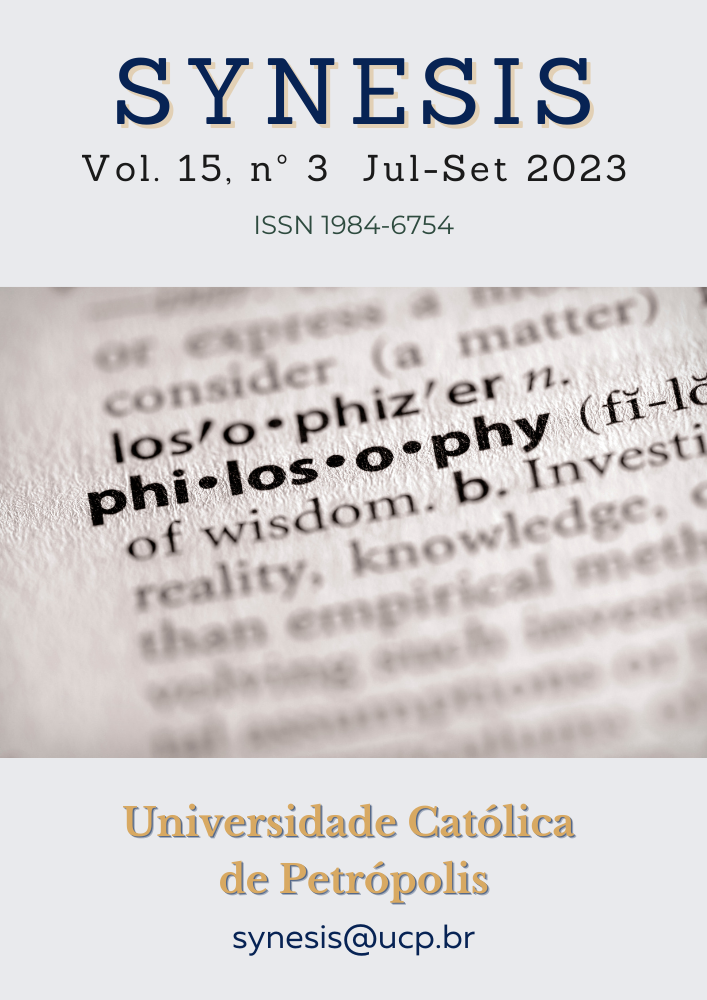Resumo
O presente artigo tem como objetivo elucidar, ainda que de forma preliminar, o conceito de liquidez em Zygmunt Bauman e seus reflexos na sociedade. Como método será utilizado o dedutivo-indutivo. Quanto à metodologia, esta será de caráter bibliográfico. Este estudo vai de encontro ao que o sociólogo Zygmunt Bauman (1925-2017), em seus textos, postula que a Modernidade pode ser dividida em duas fases: a Modernidade Sólida e a Modernidade Líquida. A primeira iniciou-se no século XV e perdurou até o século XIX; a segunda teve início no século XX e se estende até os tempos atuais. Para descrever a sociedade moderna a partir do final do século XX, Bauman utiliza-se da metáfora da ‘liquidez’, tendo como objetivo apontar que o mundo contemporâneo atravessa um período de incertezas, efemeridades e instabilidades. Segundo Bauman, o ideal moderno cunhado entre os séculos XV e XIX postularam o primado da razão e da autonomia do homem capitalista e tais pressupostos conduziram a sociedade à modernidade líquida. Nessa “contemporaneidade” liquida, nada é duradouro, tudo é volátil, efêmero; o consumo é o parâmetro social, seja do indivíduo, da família, do Estado e da religião.
Referências
BAUMAN, Z. A Arte da Vida. Rio de Janeiro: Jorge Zahar, 2008.
BAUMAN, Z. A Modernidade Líquida. Rio de Janeiro: Jorge Zahar, 2000
BAUMAN, Z. Comunidade: a busca por segurança no mundo atual. Rio de Janeiro: Jorge Zahar, 2001.
BAUMAN, Z. Em Busca da Política. Rio de Janeiro: Jorge Zahar, 1999.
BAUMAN, Z. Identidade. Rio de Janeiro: Jorge Zahar, 2004.
BAUMAN, Z. La Sociedad Sitiada. Buenos Aires: Fondo de Cultura Económica, 2002.
BAUMAN, Z. Modernidade e Holocausto. Rio de Janeiro: Jorge Zahar, 1998.
BAUMAN, Z. Mundo Consumo: Ética del Indivíduos em La Aldea Global. Buenos Aires: Paidos, 2008.
DO NASCIMENTO, Kelvis Leandro; DA SILVA, Allyson Darlan Moreira. A sociedade líquida e o conceito de felicidade em “A arte da vida” de Zygmunt Bauman. Cadernos Zygmunt Bauman, v. 9, n. 19, 2019.
MARX, Karl. Manifesto do partido comunista. São Paulo, SP: Expressão Popular, 2008.
OLIVEIRA, L. P. de. Zygmunt Bauman: a sociedade contemporânea e a sociologia na modernidade líquida. Revista Sem Aspas , [S. l.], v. 1, n. 1, p. 25–35, 2012. DOI: 10.29373/sas.v1i1.6970. Disponível em: https://periodicos.fclar.unesp.br/semaspas/article/view/6970. Acesso em: 18 Jan. 2022.
PALLARES-BURKE, M. L. Entrevista com Zygmunt Bayman. Tempo Social. São Paulo. v. 16, n. 1, p. 301-325, 2004.
SANTOS, Guilherme Ferreira; DA SILVA, Otávio Guimarães Tavares. Conceito De Modernidade Líquida: Revisão teórica e implicações para a prática de vida. Cadernos Zygmunt Bauman, v. 3, n. 5, 2013.
SILVA, Rafael Bianchi; MENDES, Jéssica Paula Silva; ALVES, Rosieli dos Santos Lopes. O conceito de líquido em Zygmunt Bauman: Contemporaneidade e produção de subjetividade. Athenea Digital. Revista de pensamiento e investigación social, v. 15, n. 2, p. 249-264, 2015.
SOARES, Frederico Fonseca. NEOINDIVÍDUO: Questões sobre a liberdade na modernidade líquida. Cadernos Zygmunt Bauman, v. 1, n. 2, 2011.
SZWAKO, J. Identidades Liquidadas. Revista Sociologia Política. Curitiba, n. 27, p. 215-218, nov. 2006. Disponível em: <https://goo.gl/cU6u5M>. Acesso: 15 de Nov. 2021.
PONDÉ, Luiz Felipe. Zygmunt Bauman e a pós modernidade. Instituto CPFL, Café Filosfósico, 20b08. Disponível em: < https://institutocpfl.org.br/o-diagnostico-de-zygmunt-bauman-para-a-pos-modernidade-uma-agenda-para-o-inverno-ambivalencia-medo-e-coragem/>. Acesso em: 18 Jan. 2022.

Este trabalho está licenciado sob uma licença Creative Commons Attribution-NonCommercial-NoDerivatives 4.0 International License.
Copyright (c) 2023 Synesis (ISSN 1984-6754)

